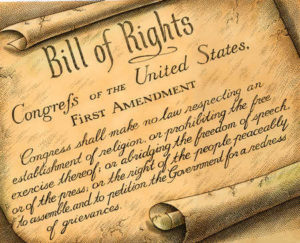Let’s take a quick second look at the First Amendment to the U.S. Constitution in light of a decision the Supreme Court is likely to deliver about a former high school football coach who lost his job because he wanted to pray on the field after games.
Joe Kennedy, a former coach at Bremerton (Wash.) High School, has seen this case make all the way to the top of the judicial food chain. His prayers drew criticism from those who said it violated the Constitution’s ban on state-sanctioned religion.
OK, back to the amendment. It sets four liberties for protection; it calls for a free press, freedom to assemble peaceably, to petition the government for gripes … and it has a religion clause.
It says, specifically, that “Congress shall make no law respecting an establishment of religion, or prohibiting the free exercise thereof … ”
The framers set the religion matter first among those liberties. Why? Because their direct forebears had fled Europe’s religious mandate. They created a secular state in the New World. The other provisions came secondary to the religious one.
It does trouble me, therefore, that someone would complain about a coach praying on the field, which is his right as a U.S. citizen. The athletes who joined him in prayer? They weren’t forced to do it. The coach didn’t threaten them with losing their playing time if they decided against praying.
Common sense would seem to dictate that the young athletes were free to do what they felt like doing. Common sense also tells me the framers had it right when they lined out the prohibition against establishing a state religion as the first civil liberty to be protected.
